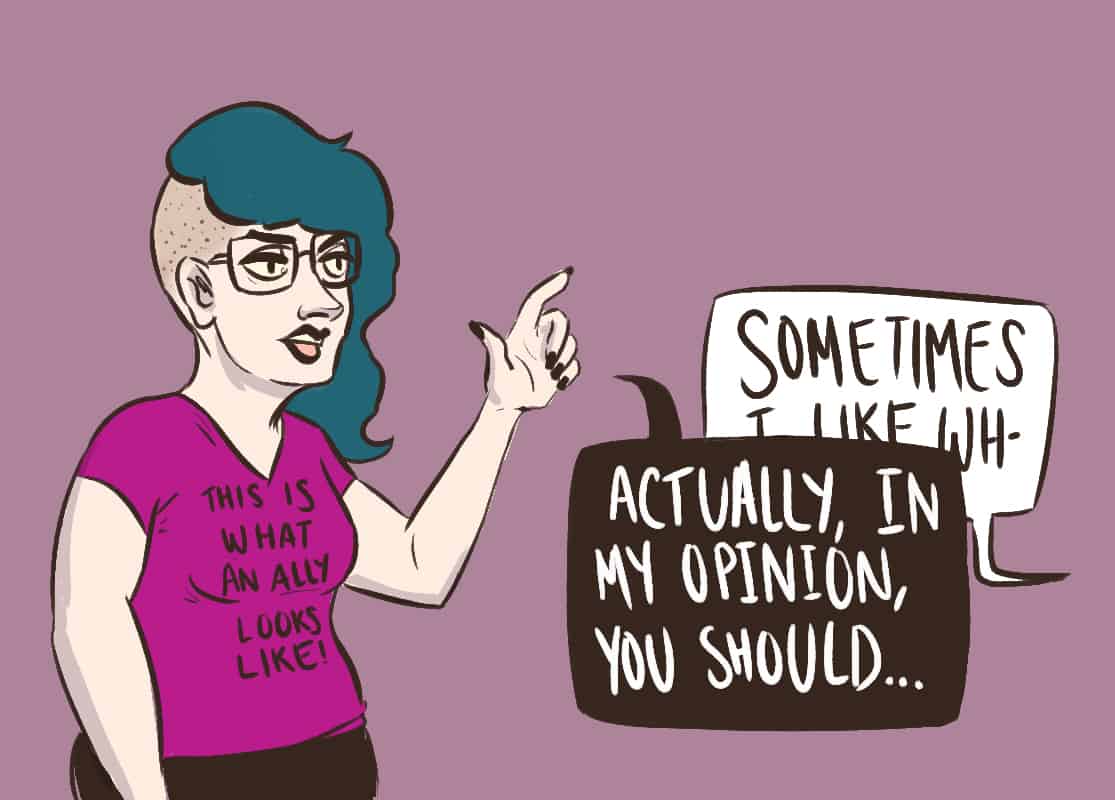Unless you’ve been living under an internet-free news-less rock these past few weeks, you’ve at least heard of the Baltimore riots, which erupted in April, in protest of the extra-judicial murder of a young black citizen, Freddie Gray, at the hands of the Baltimore city police force. Such anti-black police brutality is sobering, yet unsurprising, in North America.
Just look at Ontario, where “black males are more likely than whites to be stopped by police, to be refused bail and to plead guilty to avoid spending long periods of pretrial detention.” This is not to mention the overrepresentation of black people in prison, and our very own Toronto police force’s thinly veiled racial profiling via carding policies.
In this way, marginalized folks have been forced to live in a never-ending social narrative where we are introduced as, and made to live as, antagonists. Marginalized bodies are assumed to be deviant until proven otherwise — see, for example, Desmond Cole’s recent feature in Toronto Life.
It should come as no surprise then, that our voices become angry, that we riot in the face of oppression. Any act in which a person of colour voices their discomfort is a riot — whether it is through Twitter campaigns, organized protest, or simply asking someone to check their privilege. It’s a riot because the marginalized aren’t policing their reactions, and we are asserting that our lived experiences override white knowledge.
Riots are part and parcel of social change. The expression of anger, which often culminates in violence, is a direct challenge to the oppressive status quo. Without such disruptions, institutionalized disadvantages will continue.
Yet, the voices of liberals often overpower those of the marginalized. In Baltimore, for instance, self-proclaimed allies were quick to point at the urgency of black-on-black crime, the burden of damaged property, and, of course, the proper, non-violent way to protest, all while ignoring the issue at hand — that is, the state-sanctioned violence against black folks. To disagree with these allies means that you’re no better than a thug, an animal — a nigger.
These negative reactions to riots are how the marginalized come to know who their true allies are, contrasted with those who use their ally status for social capital. True allies don’t condemn a marginalized group for the way in which they react to state sanctioned oppression. If one is actively working to silence the voices of the disempowered, rather than amplifying them, then the title “oppressor” is better suited.
Consider, for instance, the controversy surrounding the Engineering Society (EngSoc)’s Fiesta Party last year. When Latin people and allies took to the Facebook event page to express their concerns about cultural appropriation, they were more than just disregarded — they were attacked.
Comments derided them for questioning the good intentions of the organizers, for not restricting their voices to private messages, but most of all, for believing that their lived experiences mattered. In the same vein as the “educated” responses to the Baltimore riots, fake allies overtook, silenced, and ridiculed the issue at hand.
The experiences of those speaking out didn’t matter, so long as “allies” were having a good time. Even if that good time had a literal anthropoid beer mug with a sombrero, moustache, and matching taco in hand as an event banner.
A similar event occurred when HERE, a feminist letter writing society at U of T, uploaded a picture of a white woman donning a bindi at the organization’s witch-themed party. On behalf of many others, two South Asian women publicly voiced their dissatisfaction to the organization.
Yet, their voices were condemned, rather than supported in solidarity. Artistic freedom suddenly became more important than the everyday oppression faced by those who wear bindis. Mutual male friends of the white women defending the picture attacked the personalities of those who dared to speak up. Later, the conversation descended into questioning the tone of said women, and critiques of perceived “unnecessary” anger.
Akin to responses of the Baltimore riot, self-proclaimed allies ignored and even justified institutionalized discrimination. These allies have the most powerful voices, so their opinions eventually become what it means to be “progressive”.
This is oppression. Power dynamics do not have to manifest in physical violence; the psychological and social harm of denying the experiences of others is just as destructive.
Allyship isn’t a badge that you can take on and off whenever it’s convenient to you. Instead, true allyship means continually listening, understanding, and empathizing with those who are marginalized, instead of telling them how to react to situations that only you determine are unjust. To be a true ally means accepting that you’ll never fully understand the real life consequences that systemic oppression forces onto the marginalized for simply being alive.
Until then, your so-called progressiveness is about as progressive as a VHS copy of Song of the South.
Ondiek Odour is a fourth–year student at Trinity College studying socio-cultural anthropology and literature & critical theory.
Correction: An earlier version of this article incorrectly said that Ondiek Odour is studying literature and critical theory.


